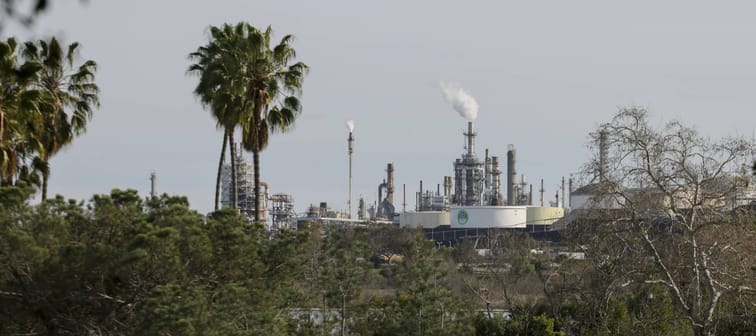Shutting down refinery powerhouses
The Phillips 66 and Valero’s Benicia sites are set to close in 2026. Together, the shutdowns will eliminate nearly 300,000 barrels-per‑day of refining capacity — roughly 20% of the total used in the state.
Valero attributed its decision to “years of regulatory pressure (and) significant fines for air quality violations,” including an $82 million penalty levied in 2024. Phillips 66 similarly cited business challenges stemming from California’s strict environmental regulations.
"They have said that they cannot do business in the state of California," Gipson reiterated. “The regulatory agencies have imposed on the refiners of California very stringent regulation that makes it very difficult for them to remain in the state of California.”
The way Gipson sees it, the state should do everything it can to ensure that its remaining refineries stay in California.
"These companies have been working to make sure they meet these standards, these goals and objectives that the regulatory agencies and legislature have set."
Dave Ramsey’s plan has people crushing debt fast
Drowning in debt? Dave Ramsey’s viral 7-step method is helping people wipe it out and finally build real savings. No gimmicks—just a clear plan that works. Moneywise breaks it down so you can get started in minutes. If you’re serious about getting ahead, don’t miss this.
See the stepsWhat’s at stake
With California processing about 24% of its own crude oil needs but consuming a far greater share — some 13.1 million gallons daily — the impact of these closures is significant:
Less supply and higher gas prices
California drivers already pay the highest gas prices in the nation — around $4.85 per gallon, significantly greater than the $3.16 national average.
With less local supply, experts warn of a potential impact that could range from modest spikes (less than $1 per gallon) to more dramatic spikes if supply disruptions occur. One particular analysis forecasts prices could even soar over $8 per gallon by late 2026.
“California can ill afford the loss of one refinery, let alone two,” said USC Professor Michael Mische in a May 2025 report.
Import dependency and emissions
With fewer local refineries, the state will rely heavily on imported fuel — both from other U.S. regions and overseas — which would escalate shipping costs and increase emissions from tanker vessels at the ports as well as possibly the other refineries where the imported oil originates (they themselves may not be meeting sufficiently stringent environmental or quality standards).
Job losses and tax impacts
Each closure risks the loss of hundreds of direct and indirect jobs. The Benicia refinery supports about 400 employees, while Phillips 66 has around 900 workers and contractors. Layoffs will ripple through communities, hurting local economies and tax revenue.
The risks and rewards
As California's refineries close, the state stands to gain and lose in different areas. For example, while local air will potentially be cleaner, pollution will increase at ports from tankers bringing in imported fuel.
There may be a boost to clean-energy infrastructure and jobs, along with potential federal or state transition aid. However, the current industry will see large job losses and communities reliant on incomes related to local refinery work may suffer economically.
The state will also rely on foreign markets and supply chains, making it more vulnerable to disruptions beyond its control.
Under 60? Lock in life insurance in minutes
Get term life insurance fast—with no agents, no exams, and no stress. Ethos lets you apply online in minutes and get covered for as low as $15/month. It’s affordable peace of mind, without the hassle Get your free quote now








